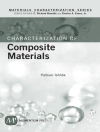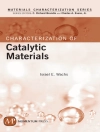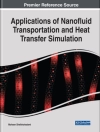In 2003 the German Research Foundation established a new priority programme on the subject of “Imaging Measurement Methods for Flow Analysis” (SPP 1147). This research programme was based on the fact that experimental ?ow analysis, in addition to theory and numerics, has always played a predominant part both in ?ow research and in other areas of industrial practice. At the time, however, c- parisons with numerical tools (such as Computational Fluid Dynamics), which were increasingly used in research and practical applications, soon made it clear that there are relatively few experimental procedures which can keep up with state-of-the-art numerical methods in respect of their informative value, e.g. with regard to visu- spatial analysis or the dynamics of ?ow ?elds. The priority programme “Imaging Measurement Methods for Flow Analysis” was to help close this development gap. Hence the project was to focus on the investigation of ef?cient measurement me- ods to analyse complex spatial ?ow ?elds. Speci?c cooperations with computer sciences and especially measurement physics were to advance ?ow measurement techniques to a widely renowned key technology, exceeding the classical ?elds of ?uid mechanics by a long chalk.
Tabela de Conteúdo
Principles of a Volumetric Velocity Measurement Technique Based on Optical Aberrations.- The Wall-PIV Measurement Technique for Near Wall Flow Fields in Biofluid Mechanics.- Laser Doppler Field Sensor for Two Dimensional Flow Measurements in Three Velocity Components.- Array Doppler Global Velocimeter with Laser Frequency Modulation for Turbulent Flow Analysis – Sensor Investigation and Application.- Self-calibrating Single Camera Doppler Global Velocimetry Based on Frequency Shift Keying.- Recent Developments in 3D-PTV and Tomo-PIV.- 3D Tomography from Few Projections in Experimental Fluid Dynamics.- Tomographic PIV for Investigation of Unsteady Flows with High Spatial and Temporal Resolution.- Time-Resolved Two- and Three-Dimensional Measurements of Transitional Separation Bubbles.- Coloured Tracer Particles Employed for 3-D Particle Tracking Velocimetry (PTV) in Gas Flows.- Two Scale Experiments via Particle Tracking Velocimetry: A Feasibility Study.- Extended Three Dimensional Particle Tracking Velocimetry for Large Enclosures.- High Density, Long-Term 3D PTV Using 3D Scanning Illumination and Telecentric Imaging.- Quantitative Measurements of Three-Dimensional Density Fields Using the Background Oriented Schlieren Technique.- Tomographic Reconstruction and Efficient Rendering of Refractive Gas Flows.- 2D-Measurement Technique for Simultaneous Quantitative Determination of Mixing Ratio and Velocity Field in Microfluidic Applications.- Simultaneous, Planar Determination of Fuel/Air Ratio and Velocity Field in Single Phase Mixture Formation Processes.- Development of Imaging Laser Diagnostics for the Validation of LE-Simulations of Flows with Heat and Mass Transfer.- Optical Measurements in the Wake of a Circular Cylinder of Finite Length at a High Reynoldsnumber.-Surface Pressure and Wall Shear Stress Measurements on a Wall Mounted Cylinder.- Numerical Simulation and Analysis of the Flow Around a Wall-Mounted Finite Cylinder.- Measurement of Distributed Unsteady Surface Pressures by Means of Piezoelectric Copolymer Coating.- Aero MEMS Sensor Arrays for Time Resolved Wall Pressure and Wall Shear Stress Measurements.- Infrared-Based Visualization of Wall Shear Stress Distributions.- Variational Approaches to Image Fluid Flow Estimation with Physical Priors.- Real-Time Approaches for Model-Based PIV and Visual Fluid Analysis.- Biocompatible Visualization of Flow Fields Generated by Microorganisms.- Nonlinear Dynamic Phase Contrast Microscopy for Microflow Analysis.- Spatiotemporal Image Analysis for Fluid Flow Measurements.- Extraction and Visualization of Flow Features.
Sobre o autor
Prof. Dr.-Ing. Wolfgang Nitsche holds the chair of Aerodynamics at the Institute of Aeronautics and Astronautics of the Technische Universität Berlin, and is coordinator of the priority programme 1147 ‘Imaging Measurement Methods for Flow Analysis’ funded by the DFG (German Research Foundation).












